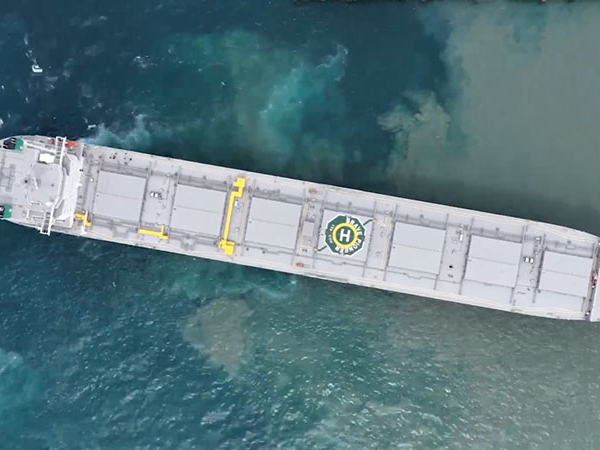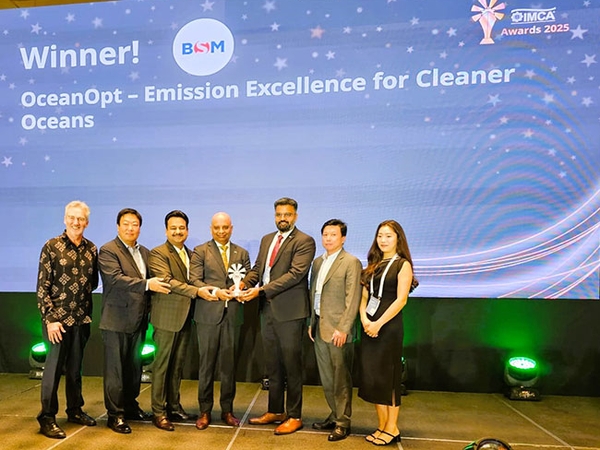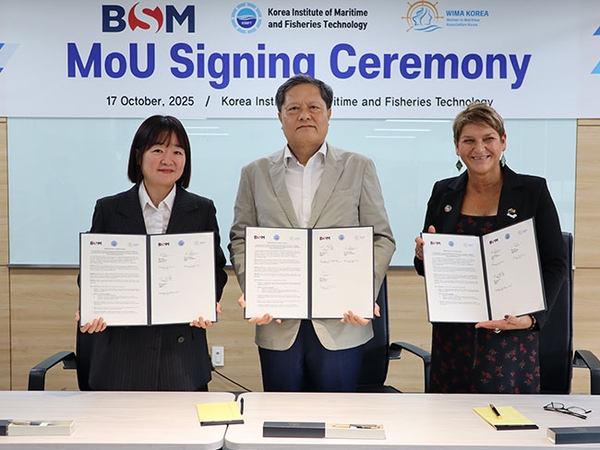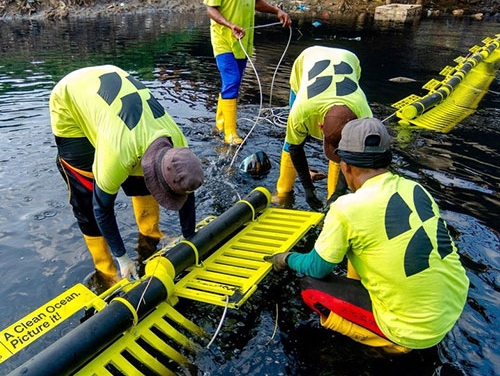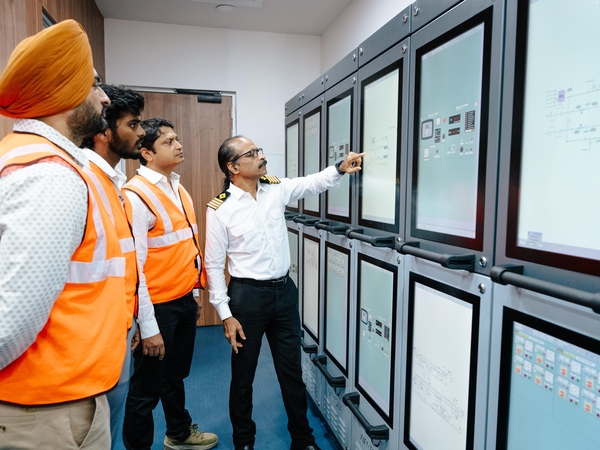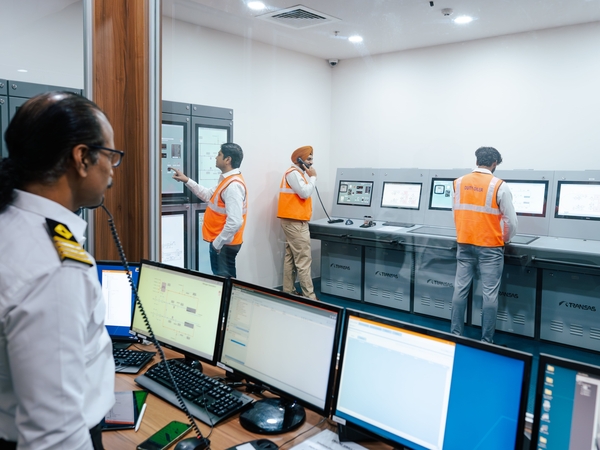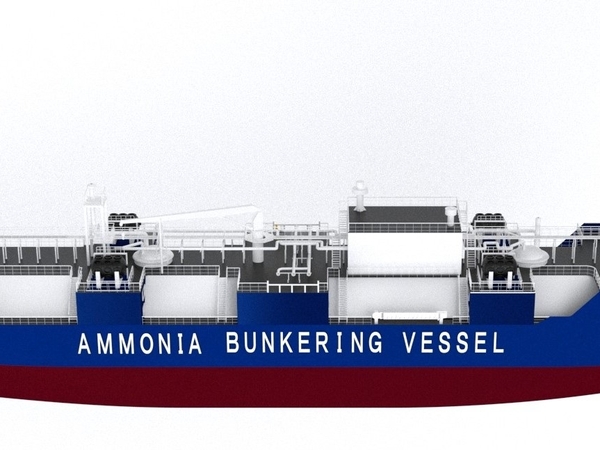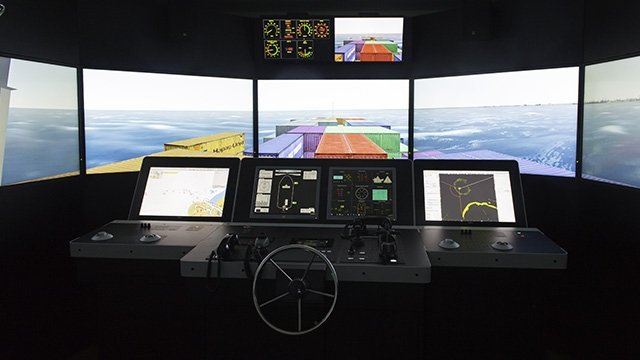
The most recent ISF/BIMCO Manpower Report based on global seafarer supply and demand in 2015 states that, at the time of the survey, there was a shortage of 16,500 Officers which is estimated to increase continually to over 145,000 by 2025. It is therefore clear that unless there is significant investment in the recruitment and training of Officers during the forthcoming years, the industry will reach a crisis point very rapidly.
There are clearly identifiable pinch points, such as the provision of Management Level Engineer Officers and Officers for specialised ships such as chemical, LNG and LPG carriers.
It is also clear, that with increasingly complex ship systems and more stringent regulatory requirements, the levels of training required for ships’ Officers needs to be enhanced and enforced.
Whilst the number of crew serving on board vessels has decreased steadily over recent years, in parallel with the adoption of new technology and automated systems, the workload and responsibility placed on Officers has increased within a tighter regulatory framework.
The industry therefore faces a two-fold challenge, to attract young people to the opportunities of serving at sea, and to ensure that these personnel are trained to the highest levels to support the operation of technologically advanced vessels in a safe and efficient manner.
Giles Heimann, BSM’s Fleet Personnel Director, understands these challenges very well and also recognises the challenge to continue and increase investment in the human factor at a time when the industry is facing pressing issues such as the oversupply of tonnage and weak freight rates.
Giles explained, “Although up until this point we have not seen vessel operation stopped due to lack of Officers, we have seen a diminishing quality of Officer available in the world seafarer pool to man our ships.”
He goes on to say, “The reality is that companies, not just within the maritime industry but in any industry, tend to cut their levels of investment in training during times of financial crisis.”
The shipping industry has been cyclical for many years with times of boom and then decline. This has been seen in the 80’s, the 90’s and, of course, following the global economic crisis in 2008 with the downturn in this cycle sustained for much longer than in previous experience.
It is clear that for the industry to find its way out of the current crisis, and with hope for future success, it is necessary to invest in recruitment, training and retention.
The BSM Approach
Giles and BSM’s Corporate Training Manager, John Pritchett, both recognise that seafarers are the single most important component of the service provided to customers by BSM, and the key to differentiating the Company from its competitors.
Giles highlights the importance of nurturing the BSM pool of over 18,000 seafarers and providing them with quality training, engagement and support.
“Recruiting high-calibre new entrants into BSM is key to our future success”, he explained. “We operate a structured Cadet Programme that recruits trainees of various nationalities to meet our demographic requirements for the future. The Cadets are recruited locally by our wholly-owned Crew Service Centres around the world, with their training schedule overseen and coordinated by the Corporate Fleet Personnel function.
It is only through the recruitment of these Cadets and ensuring they have the opportunity to serve on board BSM managed vessels during their training, followed by the offer of continued employment once qualified, that we can manage our internal requirements for well-trained and competent Officers in the future. We have to ‘home-grow’ to ensure that we are not adversely affected by the skill shortages facing the industry in general”.
With safety at sea and maintaining the enviable record that BSM is proud of achieving being of paramount importance, it is also evident that a focus on high-quality training produces results.
The Company has established a stable seafarer pool, with 10 principle nationalities of seafarer, but employs seafarers from over 30 different countries across the managed fleet. Giles is keen to point out that “No matter what the country of domicile of the seafarers employed by BSM, our customers receive a consistent standard of quality.”
To cope with the changing nature of seafaring as a profession and the responsibilities placed on ships’ Officers, it is necessary to provide effective support in a very different way than in the past. Modern communication methods, whilst enabling support from ashore, need to be utilised to assist rather than micro-manage.
BSM is making significant efforts to alleviate the regulatory and administrative burden placed on the Officers on board its managed vessels by simplifying procedures and streamlining processes, with ‘Project Pilot’ being a good example of this.
John explained, “Project Pilot is an initiative to simplify our operating manuals into clear and concise procedures that allow seafarers to read, refer to and digest vital information in easy to understand and clear formats”.
Both Giles and John point out the wider support needed to assist seafarers in carrying out their roles safely and efficiently, which is not limited to purely operational responsibilities. The Company places a high degree of emphasis on crew welfare and recognition, ensuring that its seafarers are embraced as employees within the BSM family.
One example of this approach is ‘Crew Chronicles’, a professionally produced electronic newsletter, which contains articles written by seafarers to facilitate sharing of their experiences, both work and social, with colleagues across the Company.
The Company is also embracing new technologies such as the ‘Seafarer App’ to enhance communication with its seafarers. The application, which can be downloaded onto mobile devices, enables users to view key information including their tours of duty and scheduled training and to update bank details, beneficiaries and allotment information in addition to communicating directly with the shore-based offices.
Engaging with the crew is critical to achieving high levels of retention, with the BSM Seafarer Satisfaction Survey being another initiative that aims to support this.
Giles explained, “We feel it is vitally important to provide our seafarers with the opportunity to provide direct feedback on our performance as a Company. The survey includes tough questions asking how the seafarers rate their levels of remuneration, the performance of the shore-based operating teams, their satisfaction with their employment in general and related factors such as the quality of the catering provided onboard.
Whilst the 2016 survey provided us with valuable information on which we can further increase our already high levels of satisfaction, it was rewarding to find that the majority of our seafarers are very happy with their employment and would recommend employment with BSM to other seafarers. This is supported by a higher than 90% retention rate experienced across our seafarer pool, and the fact that over 40% of BSM’s seafarers have served with the Company for more than five years.”
John stresses the importance of enhancing seafarers’ training and overall experience. He said, “It is our role to ensure that seafarers are engaged with the Company’s wider ambitions and that they completely believe in them. There has to be a sense of ongoing progression, which is why we continue to invest in training and advanced capabilities to deliver the programmes.”
BSM believes in a learner-centric approach to training that prioritises the experiential development of seafarers. Training often takes place during leave periods, which means that whilst the courses are designed to be pressurised and realistic they must also be enjoyable and engaging.
“The results are that seafarers not only finish the courses, particularly those that are conducted on our state-of-the art simulators, but enjoy the sessions so much that they want to come back for more.”
With full mission simulators now installed in three of BSM’s Maritime Training Centres around the world, the Company is ensuring that advanced training is available to all of its Officers.
In conclusion, Giles believes that there is no single solution to the manning crisis that the industry faces.
He said, “The answer does not lie in any specific nationality of future seafarer. We have to look at the best available amongst many nationalities, attract them to work for BSM, as a professional, responsible employer, and ensure that we support, train and empower them to achieve their goals. This includes beyond working at sea, with opportunities to work ashore if they so wish, to ensure that we retain their skills and experience within the BSM Family.”
